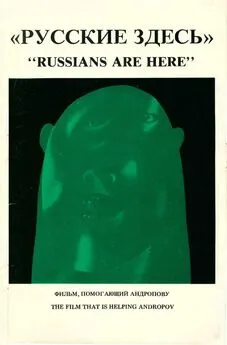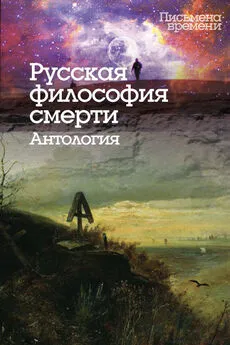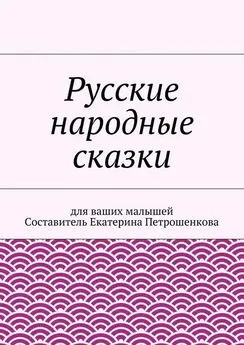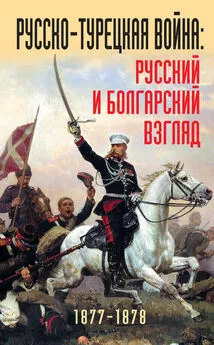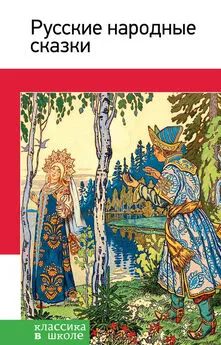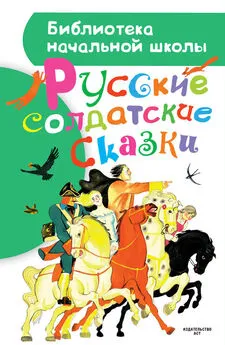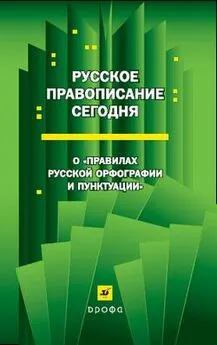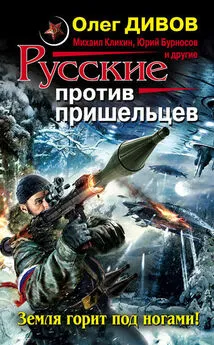Коллектив авторов - Русские здесь: Фильм, помогающий Андропову
- Название:Русские здесь: Фильм, помогающий Андропову
- Автор:
- Жанр:
- Издательство:Третья волна
- Год:1983
- Город:Париж—Нью-Йорк
- ISBN:нет данных
- Рейтинг:
- Избранное:Добавить в избранное
-
Отзывы:
-
Ваша оценка:
Коллектив авторов - Русские здесь: Фильм, помогающий Андропову краткое содержание
Мы призываем всех эмигрантов поддержать Антидиффамационную лигу, созданную по инициативе Владимира Буковского. Всю информацию об этой Лиге вы найдете на последней странице обложки.
Русские здесь: Фильм, помогающий Андропову - читать онлайн бесплатно полную версию (весь текст целиком)
Интервал:
Закладка:
Not quite. When blacks were denigraded as a group a half a century ago, they were not linked to any aggressive totalitarian superpower. The sinister racist overtone of the “documentary," on the other hand, is that these Jews and fighters against the Soviet regime who are in the United States, Europe or Israel do not differ mentally and psychologically from the “Russian” KGB and military in Poland, Cuba, Nicaragua, South Yemen or Afghanistan.
During WWII, President Roosevelt deported over 100,000 Americans of Japanese extraction. The racist propaganda of the PBS “documentary” is conducive not only to the loss of jobs by victims of this propaganda and the deterioration of their sociocultural status, but also to a possible future deportation of all Americans of Russian extraction. ІУие, Jessica Savitch herself may even be deported, for her parents came, reportedly, from an “enemy country.” But as the saying goes, those who sow a wind will reap a storm, and those who spread racist or class hatred may turn out to be its victims.
About the producer
As it turns out, I had a first-hand opportunity to meet with the producer of this “documentary,” Ofra Bikel, since I was one of those emigres she interviewed and filmed for the program:
• Ofra Bikel, I found, is not an American and speaks English worse than many recent emigres from Russia. Nor does she speak any Russian.
• Her knowledge of Russia, the Soviet regime, its inmates or fugitives from it residing in America seems to be nil, and not just “very little,” as the announcer’s text says.
• She struck me as a person whose mental scope and educational background are below the average in the emigration from Russia.
• According to professional television producers among emigres from Russia, her “documentary” is inept, amateurish, poorly written and poorly filmed.
So why did PBS choose her, a totally irrelevant and poorly qualified amateur, to produce a documentary about emigres from Russia in America? Why didn’t PBS choose a gifted, well-educated, competent emigre who is an American citizen, knows America and Russia, and speaks English and Russian?
Because the numerous Ofra Bikels have become a part of the media establishment. And they want to keep their jobs, lb them emigres are a threat — more gifted, more intelligent and better qualified rivals. They want to represent these rivals as savages and derelicts, misfits of a racially different and inferior wild tribe, who are only able to drink, sing, dance and miss their beloved.Soviet regime, including the KGB. Yes, this is what one “star” in the “documentary” proclaims: “I actually miss the KGB.”
How can PBS (or any other institution or individual) employ such wild tribesmen who can only drink, sing, dance and miss the KGB? Never do that. Instead, always employ Ofra Bikel, a 100-percent American — gifted, intelligent, sophisticated.
Ofra Bikel struck the Russian emigres as being leftist, while she regards them as rightists. So what? Some people are more to the left, while others more to the right. However, Ofra Bikel regards her political views as standards of absolute truth, while those even a jot to the right of hers are wild aberrations of Russian savages. Here is a snippet from the “documentary”:
Emigre: Tbomuch freedom [in America] for criminals, too much freedom for young people. Interviewer: Why have you come here?
To produce the show, why did PBS choose Ofra Bikel
— a poorly qualified amateur
— and not a gifted, well-educated competent emigre?
From 60 to 80 percent of Americans believe that there is too much freedom in America for criminals and — in a different sense — for young people. For Ofra Bikel this is a wild aberration of a Russian savage: "Why have you come here?”
The emigre, who is by now an American citizen, could have asked Ofra Bikel: ‘‘Why have you come here?”
The fact that emigres from post-1917 Russia tend to support American views more to the right than those that Ofra Bikel supports accounts for another source of her hatred for the group.
Primitive rustics only
The emigres from post-1917 Russia have been providing a powerful cultural stimulus which we can clearly see in retrospect. If I were to choose the opening musical background for a documentary on the emigration from Russia, I would choose Rachmaninov’s Fourth Piano Concerto (which he wrote in America), played by a recent Russian emigre to an American audience.
What did Ofra Bikel choose? A 1905 tune played on a village harmonica. Now, what do recent emigres from Russia, most of whom are urban Jews, have in common with village harmonicas playing 1905 tunes?
The 1905 tune on a village harmonica is followed by a 19th-century folk song which an emigre plays on the street on a kind of xylophone, reminiscent of American street-corner musicians. Jessica Savitch says to its tune: “... they (the “Russians”] have their own music ....”
Indeed, Rachmaninov’s Fourth Piano Concerto would be absurd: the “Russians" composing or playing serious music! On the other hand, the “Russians" who have “their own” primitive street music reinforce the impression of an alien primitive Eastern tribe, with “their” music, in contrast to the music of Ofra Bikel’s Western and American sophisticated civilization.
Next comes a kind of singing and dancing clown who is “known to every Russian,” the announcer proclaims. No “Russian” of my emigre milieu has ever heard of him. But what the “documentary” purports to show is that just as all Americans know world-famous musicians or writers, ail “Russians” know their clown whom no outsider knows. The “Russians” live within their closed, self-contained tribe, alien, incomprehensible and unpleasant to outsiders.
Incidentally, this dance the clown dances is Jewish, which Ofra Bikel ought to know. But in her desire to represent Jews from Russia as aliens, savages and “Russians,” Ofra Bikel even shows an international Jewish dance as “Russian.”
Ofra Bikel stresses again and again that the “Russians” are primitive, rustic, corny. The “documentary” does not feature a single concert pianist or another serious musician, a single ballet dancer, a single scientist in any field, a single inventor or a single chessplayer. It does not show a single “Russian” doing any prestigious work or employed by a single university, a single government agency, a single hospital, a single engineering firm, or any other prestigious American institution.
Residing in the United States is a phalanx of fighters for freedom in Russia. The names of some of them are world-known. But none of them is as much as alluded to in the "documentary.”
Intense religious life, both Judaic and Russian Orthodox, exists in certain segments of immigration. It is not as much as hinted at.
The “documentary” does not show that the emigres — served by their own thriving emigre businesses, some of which are better than competitive American businesses — have brought life, order and prosperity to several areas which had been urban wastelands haunted by criminals.
The median income of emigres is, already, higher than the average for America as a whole, while the average scholastic rating of their children is far higher than America’s average. Is this surprising? No. After all, some of the most gifted, intelligent, enterprising inhabitants of Russia have been emigrating to America since 1917. They are far above the average in Russia and America. Ofra Bikel wants to see this elite as a bunch of primitive rustics, drunks, derelicts or social misfits — and this is what she shows.
Ofra Bikel’s “Russians” have the following “Russian” traits:
(1) Materialism. Though her “Russians” are paupers (not a single Russian is shown to own an expensive home, office, plant, laboratory or any other substantial property), they avidly try on mink coats, overeat, wallow in cheap vulgar “luxuries” and see X-rated movies dubbed in Russian.
(2) Rustic innocence. They don’t understand there are burglars, and the purpose of safety chains on doors has to be explained to them. In rustic Russia, evidently, no burglars exist.
(3) Inclination to crime. They are afraid of the police, forge documents and seek illegal ways in everything.
(4) Mental underdevelopment. They are primitive, speak atrocious English (all worse than even Ofra Bikel), cannot think or speak coherently on any subject, and when asked to explain how they understand freedom, they just mumble and stammer.
(5) Unfitness for freedom. In the West they are “frightened and lost.”
(6) Prudishness. “At 17 my daughter knows all there is to know about sex,” they complain.
(7) Aversion to enterprise. They are not fit for business:
“I like [business] risks as much as I like the KGB,” they groan. They are “not adventurous.”
(8) Aversion to independence. They cannot stand independence: “It is their dependence on the [Communist] Party that they now miss.”
(9) Primitive sentimentality. They are corny and maudlin, never intelligent or refined.
(10) Intolerance.
Ofra Bikel shows 10 types of “Russians”:
1. Emigre-hating emigres. Just as every social group has its own haters (i.e., there are anti-Semitic Jews), there are emigre-hating emigres. They explain daily how hateful all emigres are as a group except them, emigre-hating emigres. Those emigre-hating emigres were a godsend for Ofra Bikel.
2. Russian-language journalists who explain that in Russia they knew “what to think” and “that was very comfortable,” and here “no one tells me what to think," and "it’s ... not very comfortable.”
3. Comic businessmen trying to do some business for the Russians. Two examples are given: a garrulous young woman who is a one-woman tourist agency showing New York to the "Russians” and saying first by mistake "Washington Bridge” instead of "Manhattan Bridge,” and then "Manhattan Beach.” The other is a kind of broker who is now allegedly being sought by the police.
Both comical "businessmen” cater to "Russians.” No "Russian” businessmen catering to Americans or constituting part of American business can even be imagined, according to Ofra Bikel. She considers as non-existent the thousands of "Russian” businesses which are now American businesses, often giving jobs to Americans and serving Americans.
4.Unemployed engineers (or medical nurses). I know many former Soviet engineers who have turned down lucrative engineering jobs because they have gone into business, and one of them is a science editor at Radio Liberty. Ofra Bikel dug up an unemployed engineer and a medical nurse, neither of whom is shown on the screen, but their woeful tales of unemployment are spun at length by relatives.
5.“Intellectual people,” who are represented by someone who says he was a “boss” in Russia and who is not one here.
6. Vulgarians who recite atrocious poetry by radio.
7.Nostalgic maniacs who spend their lives watching “old Russian movies” [that is, old corny Soviet movies] "over and over.”
8.Philosophers on welfare who complain of “the emotional coldness of Americans.”
Читать дальшеИнтервал:
Закладка:
